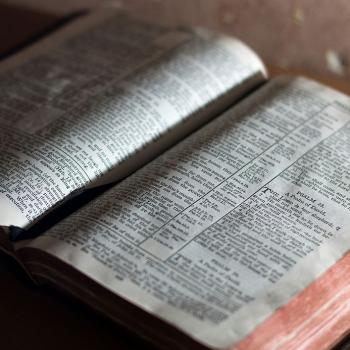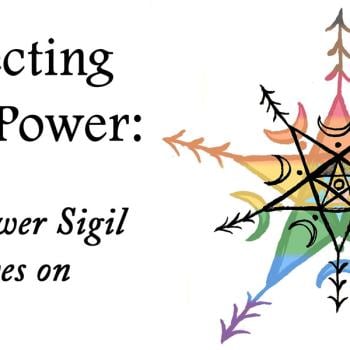Fifty years ago tomorrow, I was baptized a member of The Church of Jesus Christ of Latter-day Saints. Though there were ways in which leaving the Protestant church I'd grown up in was traumatic, I had very little idea what that move would mean to me. I probably had none.
The most obvious thing my conversion did was give me a point in my life from which everything that followed has been defined. I became a member of the LDS Church as a teenager because I had a spiritual experience that was so profound I could not deny it, then or later. It colored if not defined everything afterward.
My experience wasn't an answer to prayer. It wasn't something I'd been seeking. Instead, it was a shock. Out of the blue I was struck by the Spirit and knew immediately what was expected: I must be a Mormon. I've had no experience since then that countermanded that obligation. So here I still am.
One way to describe that experience is as a touchstone for my life, something to which I can return for strength and reassurance when needed. There is something right about that description, but it isn't quite right, for more often my experience has made reassurance unnecessary.
The question has seldom been, "Is Mormon belief true?" I already have confidence in it. Instead, my question has been "What does it mean?" or "What does it require of me?" Much of my career teaching philosophy has been spent with the first question implicit in my work. In the last 10 to 15 years, that question has become more and more explicit.
Because of the experience through which I was converted, my lack of understanding of this or that idea or doctrine, my surprise at discovering something unexpected in our history, a disappointment at some trusted leader's failure—none of these kinds of things has been an occasion for doubt. Sometimes they have reminded me of my mortality and the limits of human intelligence. Sometimes they have served as disappointments in particular persons or human character in general, reminders not to trust in any arm of flesh, not even that of an admired church leader. Sometimes they are something to which I can respond only "I don't know." But none has been an occasion for doubt about the revelation I received as a 14-year-old.
Knowing that I need not doubt has not meant knowing what my beliefs mean. Of course, work in philosophy has forced me to think about the meaning of my belief and practice: What does it mean to believe that there has been a restoration of ancient Christianity? How much does belief itself, rather than practice, matter? What does it mean to believe that God is embodied? What does it mean to believe that persons are ultimately uncreated?
If God is not transcendent in the way that the tradition understands him to be, what is transcendence? If he is not the absolute origin of truth, goodness, and beauty, can we speak of those things at all without reducing them merely to convention? Is it possible that they are in some sense conventional, that they don't have any existence except relative to the divine community? Why is it that, though I am a believer, I sometimes find myself more sympathetic to positions of thoughtful atheists than to those of other non-Mormon believers?
Because of my conversion, these questions have been part of my intellectual life for much of the past fifty years. They've not always been at the center of my work. In fact, only within the last 10 or 15 years have they begun to be my primary interest. But at some level they have always been there.
Nevertheless I have less confidence that I know what the answers to such questions are than I had when I was a graduate student. Yet I have more confidence that we are in need of rethinking our world as a whole and that contemporary philosophy at least raises the questions we need to take up and may suggest alternatives. It may help us see the need for something new.
I also have more confidence that the gospel of Jesus Christ as understood through Mormonism is a genuine alternative to the way of being-in-the-world that is essential to modernity. I have more confidence that what Mormonism brings to the intellectual table can make a difference, though I have difficulty being confident that we know what that difference is.
As Latter-day Saints we seldom understand how different our beliefs really are. We know that we are Christians. In many ways we look much like other Christians. As a consequence we don't recognize the huge chasm between some of their beliefs and some of ours. It is a chasm that may scandalize them, but that we rarely see.





